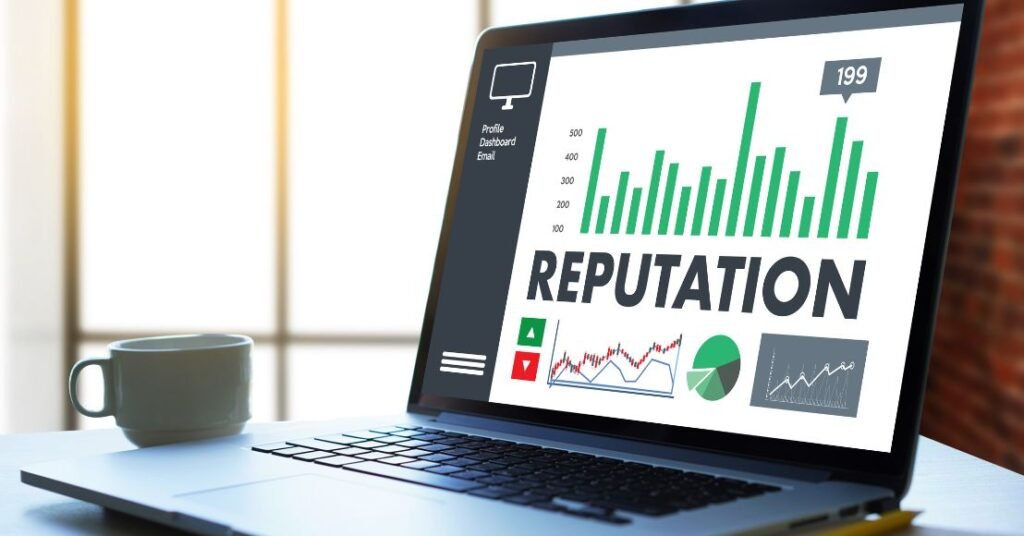Online Reputation Management
Before we go into the best solutions on this list, let’s talk about the most crucial things to keep in mind when managing your online reputation and brand presence. To stay up to date in real time, the first step in good reputation management is to keep an eye on mentions, reviews, news, and social media activity. It also includes sentiment analysis, which goes beyond just keeping track of discussions to figure out not just what people are saying but also how they feel about your business. Review management is another important part. It involves getting, organising, and responding to consumer comments to gain trust and credibility. Keeping accurate company listings and monitoring your local presence on digital platforms is just as crucial to make sure everything is the same. Analytics and reporting are very important for figuring out how campaigns, trends, and changes affect how people see a company. Finally, automation and scalability are also important, especially for businesses with several locations or franchises, to keep all operations running smoothly and consistently.

Top ORM Tools Brands Should Know
Here are a few of the most effective tools available on the market in 2025:
| Tool | Why It’s Strong / Key Features | Best Suited For |
| Reputation.com | One of the largest ORM and Customer Experience platforms. Offers Reputation Score X, Feedback Anywhere, and Conversational Surveys. This helps to consolidate reviews and surveys, social mentions and business listings onto one single dashboard. Reputation+2Reputation+2 | Enterprises, multi-location businesses and brands that require extensive analytics and strong local-presence management. |
| SOCi (Genius Reviews / Reputation Agent) | Strong in AI-driven review automation, brand-consistent responses, sentiment detection, real-time monitoring. It is well-suited for brands with multiple sites. SOCi+2SOCi+2 | Multi-location companies, franchises or brands that need central control but with localized significance. |
| ReviewTrackers | Excellent in aggregating reviews across 100+ websites, keeping track of trends, making it easier to automate reviews, and sending notifications. “Ask Tool “Ask Tool” is especially beneficial for reviewing volume that is growing. ReviewTrackers+2ReviewTrackers+2 | Small to mid-sized enterprises services industries (restaurants and clinics, hotels) which rely on reviews. |
| Yext | It is a powerful tool for managing business directory listings and data, and ensuring that the information is consistent across search, maps and review websites. Helps to prevent information mismatches that could cause distrust. Reputationo+1 | Local businesses, multi-location chains companies that rely on the visibility of local searches. |
| Trustpilot | Highly effective in verifying reviews by customers, which builds trust by being transparent. Ideal for companies with online-based products that target consumers, or for those who sell to them. Radarr+1 | Consumer product brands, e-commerce as well as businesses in which social proof is a major factor in influencing buyers. |
| Mention | More of a listening and alert tool. It helps track brand mentions on blogs, media, social networks, as well as sentiment and influencer monitoring. It is useful for quick alerting. Radarr+1 | Companies that want to remain up-to-date with what people are saying on the internet, particularly to prevent crisis and PR teams. |

How to Pick the Right Tool for Your Brand
To select the ORM tool that is best suited to your requirements, think about:
- Scale and count of locations If you’re operating multiple sites or outlets, then you’ll require something that can support local review sites, listings for local businesses and consistent brand responses across different locations (e.g. SOCi or Reputation.com).
- Budget Some tools come with high costs to start small-scale brands may begin with less expensive tools, or with free versions (or mixing tools).
- Features you require immediately in comparison to later -Do you require full analysis right now or do you prefer to receive alerts and respond quickly? Don’t spend too much for features that you will never use.
- Easy to use Tools that have easy-to-use dashboards and excellent assistance can help your team to adopt more quickly.
- Automation and Brand Controls for voice -If you’re looking to automate responses, they need to be consistent with the brand. Tools that incorporate AI or templates can be useful however they require oversight.
- Integration capabilities Integration with your CRM and marketing automation, as well as search listing services, etc. can streamline your work.

Common Challenges & How Tools Help
Brands are often challenged by:
- Multiple review platforms and not-monitored mentions.
- Inconsistent responses, or not noticing negative feedback.
- Local listings are inaccurate or out of date.
- The bottlenecks can be caused by manual review or responding and delays.
Good ORM tools tackle these issues with centralizing oversight, providing the use of templates or scheduled responses, flagging issues that are urgent as well as synchronizing listings and supplying reports to ensure continuous improvement.
Also read – Why Startups Should Hire a Brand Consultant from Day One
Conclusion
Online reputation doesn’t only revolve around the content of what’s being said. It’s about the speed at which you listen and respond authentically to your audience, and how you establish trust over the course of. A good ORM tool can be a powerful force multiplier, saving you the time and effort, decreasing risk and assisting you in turning the negative reviews or mentions you receive into positive growth instead of harm.
If you’d like I could send you I can send you a Table of comparison of features and prices for these software tools so that you can choose one that best suits your needs and needs.
Faqs
Q 1. What should I look for in a reputation management tool?
A great tool should offer real-time monitoring, sentiment analysis, review management, and detailed reporting to help you track and improve your brand’s image effectively.
Q 2. Why is sentiment analysis important in reputation management?
Sentiment analysis helps you understand the emotions behind customer feedback, allowing you to identify potential issues and improve customer satisfaction proactively.
Q 3. How do automation and scalability benefit reputation management?
Automation saves time by managing repetitive tasks like review responses, while scalability ensures consistent performance across multiple locations or brand outlets.
Q 4. Can a reputation management tool integrate with other marketing systems?
Yes, the best tools integrate seamlessly with CRMs, social media platforms, and marketing software to streamline workflows and provide a unified brand management experience.
Q 5. How do analytics and reporting improve brand reputation?
Comprehensive analytics and reports help you measure the impact of your reputation strategies, track trends, and make data-driven decisions to strengthen brand credibility over time.







